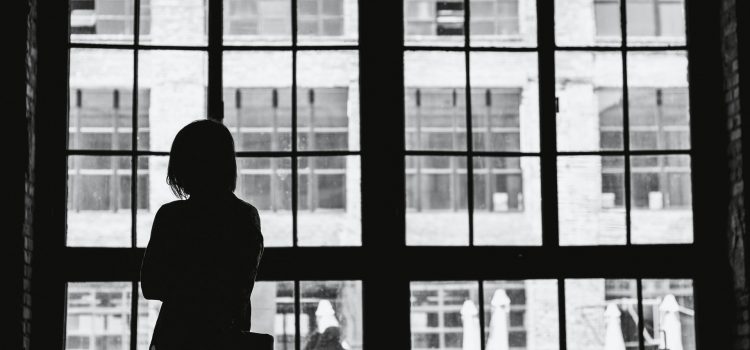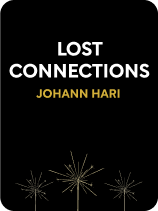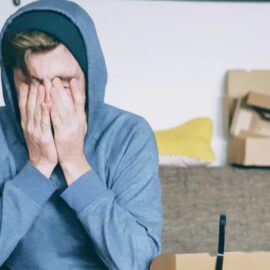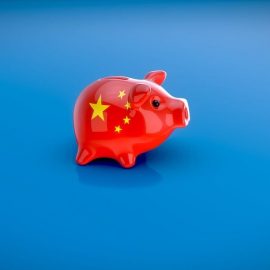

This article is an excerpt from the Shortform book guide to "Lost Connections" by Johann Hari. Shortform has the world's best summaries and analyses of books you should be reading.
Like this article? Sign up for a free trial here .
What can happen when you are feeling disconnected from people? What can trigger such a disconnection from others?
Feeling disconnected from people creates loneliness which can trigger the onset of depression. Humans evolved as social animals that banded together to survive—loneliness triggers fear of survival which leads to depression. Our modern society encourages independence and self-sufficiency, which is at odds with our evolutionary need for community.
Read more about the dangers of feeling disconnected from people.
Disconnection From Meaningful Relationships
Feeling disconnected from people is the root cause of loneliness, and it starts when you feel a disconnection from meaningful relationships with other people. Social isolation can create loneliness, which impacts us on more than just an emotional level: It creates real, measurable change in the body. In one study, researchers found that acute loneliness raises your levels of the stress hormone cortisol as much as being physically attacked.
(Loneliness also lowers your immune response. One study found that lonely people are three times more likely to catch the common cold than socially connected people; another study found that when people get sick with cancer or heart disease, lonely people are two to three times more likely to die from that illness than connected people are. These health effects will become an even bigger concern as technology starts to replace all types of in-person connections.)
The link between feeling disconnected from people and depression is deceiving because it could reasonably go both ways: Loneliness could trigger the onset of depression, or being depressed could lead to social withdrawal and ultimately trigger loneliness. Researchers tested the direction of this effect using the power of hypnosis. They administered a battery of personality tests (including a test of depression symptoms) to participants and divided them into two groups. A psychiatrist who specializes in the clinical use of hypnosis then prompted one group to remember experiences of profound loneliness and the other group to remember feeling profoundly socially connected.
After coming out of hypnosis, the participants completed the personality tests a second time. The results were conclusive: People who remembered feeling disconnected from people were significantly more depressed than they had been before undergoing hypnosis, and people who remembered feeling connected were significantly less depressed. In other words, this study showed that loneliness is a cause of depression, not just a result, because making people feel more lonely also made them feel more depressed.
Why Feeling Disconnected From People Is at Odds With Our Evolutionary History
If you think about loneliness in the context of evolutionary history, it makes sense that being isolated from other people would lead to depression. Millions of years ago, humans were much further down the food chain than we are now. The only way for early humans to avoid becoming a tasty snack for a predator was to band together into tribes. People who felt miserably depressed when they wandered off on their own were more motivated to stick with the tribe, and so they were more likely than loners to survive long enough to pass on their genes. In other words, the inability to tolerate loneliness due to the depression it triggered is what kept our ancestors alive.
What does this mean for modern humans? Essentially, we are the descendants of the people who had the strongest negative reactions to social isolation (because the more it hurts to be alone, the more motivated you are to stay with the group). On a deep, instinctual level, our entire species evolved to be especially sensitive to loneliness and to interpret feeling lonely as a powerful signal meaning “I am not safe, and I need to get back to the group now”—and for modern humans, that powerful unease translates to depression.
That evolutionary sensitivity to loneliness makes chronic loneliness a self-perpetuating problem. Feeling disconnected from people triggers depression, which makes people withdraw and isolate themselves. On top of that, they become highly anxious because, as previously mentioned, the most primitive part of their brains perceives isolation as a threat. That anxiety makes them even more suspicious and afraid of strangers, making it even harder to form the genuine connections they need. It’s easy to justify this with the Western emphasis on independence and self-sufficiency, but in reality, humans were not built for isolation. We have a deep evolutionary need for community.

———End of Preview———
Like what you just read? Read the rest of the world's best book summary and analysis of Johann Hari's "Lost Connections" at Shortform .
Here's what you'll find in our full Lost Connections summary :
- The psychological and social factors that contribute to mental illness
- The history of antidepressants and the science behind them
- Why Amish people hardly ever get depressed







..WELL BUT GOD says:
👉*SEPARATE YOURSELVES FROM WICKED PEOPLE!* FOCUS ON GOD NOT PEOPLE END OF STORY!